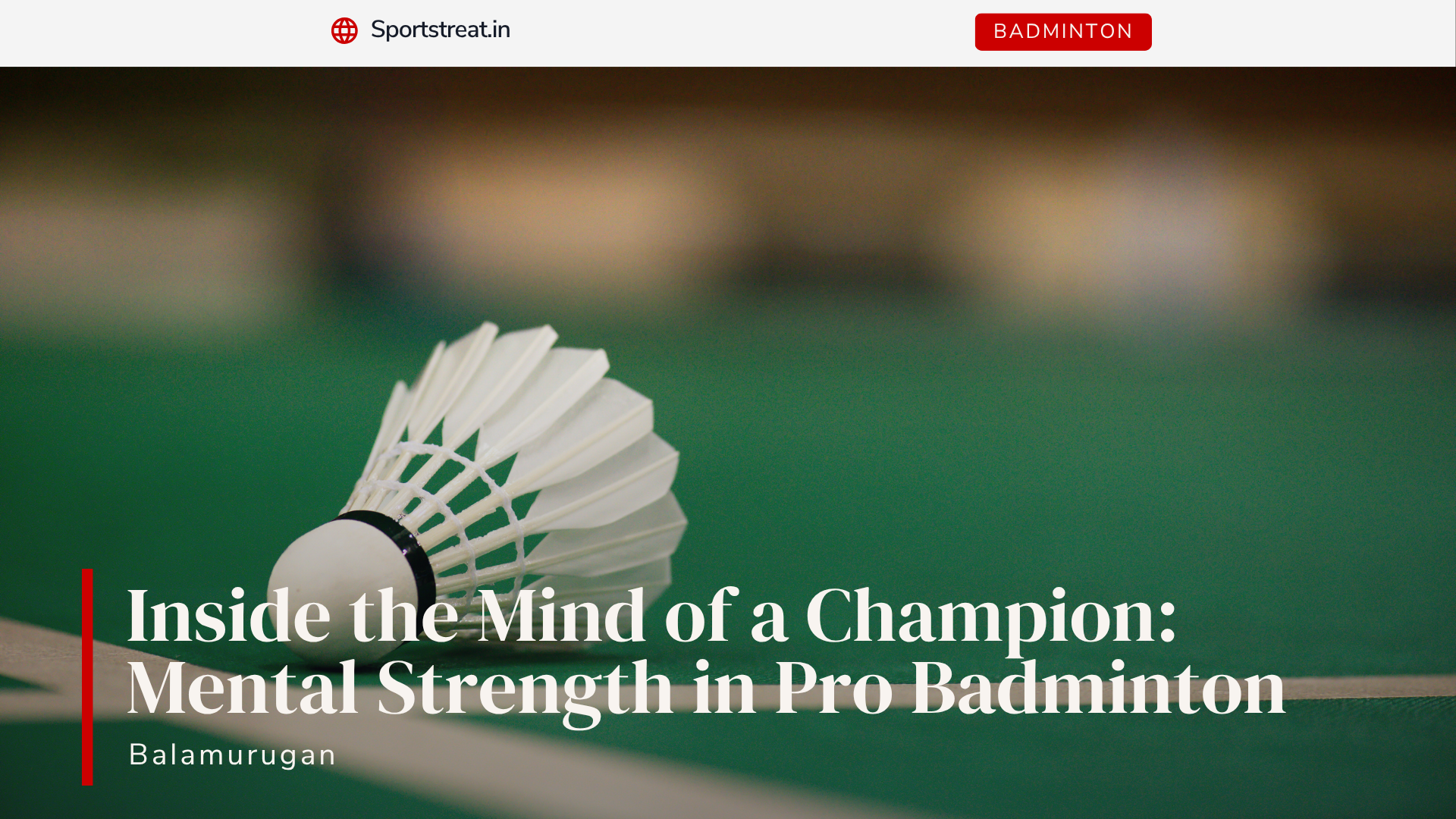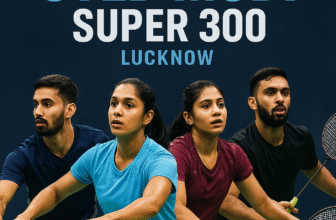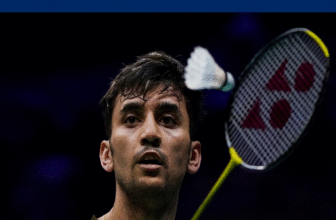
Introduction
In the explosive, fast-paced world of professional badminton, physical prowess and technical mastery command attention. Yet, in matches where every rally can swing outcomes and the difference between victory and defeat is a matter of millimeters or milliseconds, it is the mind—the inner drive, focus, and resilience—that separates good players from champions. Mental strength is the hidden engine that sustains legends and creates iconic moments on court.
This article delves deep into the psychology of elite badminton athletes. Through a rich exploration of their experiences, techniques, struggles, and triumphs, you’ll discover how world-class players cultivate and maintain the mental fortitude required to reach the sport’s pinnacle.
The High-Pressure Arena of Professional Badminton
Speed, Stamina, and Split-Second Decisions
Badminton at its highest level is a test of intensity. Players must sustain high speeds, make rapid shuttle interceptions, and counterattack instantly. The constant physical demand is matched only by the pressure to make intelligent tactical choices in real time. Every point is an opportunity—and a battle.
- Unpredictable Matches: No lead is safe. Matches can turn with a single error or a flash of brilliance.
- Compressed Recovery: Unlike some sports where timeouts and substitutions are plentiful, badminton’s relentless pace allows no luxury of mental downtime.
- Solo Nature under Scrutiny: Between rallies, players stand alone, facing their own thoughts and the expectations of coaches, sponsors, fans, and, most pressingly, themselves.
The Role of Pressure and Expectations
Professional badminton carries immense external and internal expectations:
- National Pride: Many players, especially from badminton powerhouses like China, Indonesia, and India, face the burden of representing their countries.
- Media and Social Attention: Modern athletes must also manage media narratives and widespread attention on social platforms.
- Personal Aspirations: Champions set incredible personal standards and often exhibit perfectionist tendencies—fueling both their ascent and potential internal conflict.
Mental Attributes That Define Badminton Champions
1. Focus and Concentration
Maintaining focus through a tournament that spans days—and matches that can last more than an hour—demands deliberate mental training. Players need unwavering attention:
- On the Shuttle: Tracking shuttle trajectory, spin, and opponent’s movement.
- On the Rally Goal: Executing tactics, adapting plays, and staying ahead tactically.
- Avoiding Distractions: Curtains of isolation must be drawn, whether blocking a noisy crowd or bouncing back after a misjudged shot.
Training the Focus Muscle
Many top players adopt pre-point routines (clearing the sweat from their brow, twirling their racquet, taking controlled breaths) to re-center themselves and narrow mental bandwidth to the task at hand. These rituals become anchors of steadiness in stormy matches.
2. Emotional Regulation
Emotions fuel high performance, but volatility can sabotage it. Champions have learned to control their emotional landscape:
- Turning Nerves into Excitement: Instead of suppressing nerves, great players channel the adrenaline surge into heightened alertness.
- Handling Frustration: Unforced errors happen. Elite athletes quickly erase negative self-talk and return to the present moment.
- Staying Level: Whether up by eight or down match point, emotional consistency lets champions execute their best back-to-back plays under all circumstances.
Stories from the Court
It’s not uncommon for top shuttlers to lose a close game yet find composure within minutes, executing clear tactical shifts in the next set. This ability to “reset” mentally underpins many big-match comebacks and legendary performances.
3. Resilience and Bounceback Ability
Champions inevitably face defeats, injuries, or career slumps. Mental resilience is what enables them to:
- Learn from Losses: Instead of dread, setbacks are reframed as valuable lessons.
- Rebound Mid-Match: Recovering from a run of lost points requires relentless self-belief and short-term memory.
- Return from Injury: The journey through surgery and rehab tests confidence. True champions build back stronger, both physically and mentally.
Techniques Used
- Reframing Failure: Stars are often taught to view “failure” as constructive feedback.
- Positive Self-Talk: Phrases like “next point,” or “this shot counts” act as quick motivational triggers.
4. Adaptability and Strategic Flexibility
The best players adapt instantly. Few matches play out according to script. Shuttlers must:
- Read Opponents: Sensing when an opponent’s style shifts.
- Change Gears: If one tactic is failing, top athletes modify tempo, shot orientation, or defense-on-the-fly.
- Handle Surprises: Wind currents, unfamiliar shuttle speeds, or unexpected line calls can upend game plans. Champions stay mentally flexible, responding rather than reacting.
5. Confidence Under Pressure
Mental strength in badminton hinges on confidence that is deep and sustainable.
- Trust in Practice: Champions rely on countless hours of training to execute the right decision automatically, regardless of stakes.
- Belief in Comebacks: Even when trailing, a champion expects opportunities and seeks momentum.
- Self-Sourced Motivation: While external fans thrill, the ultimate drive emanates from within.
Inside the Champion’s Mind: Training and Rituals
Visualization and Mental Imagery
- Match Simulation: Before major tournaments, players close their eyes and vividly picture successful rallies, perfect smashes, and calm responses to crisis moments.
- Coping Scripts: Athletes anticipate “what if” scenarios, mentally rehearsing positive responses to errors or adversity.
Mindfulness and Meditation
- Present-Moment Awareness: Mindfulness practices help players remain anchored in the now—focusing on the current shuttle, not the last mistake or the scoreboard.
- Routine Breathing: Controlled breathing before and during matches regulates heart rate and reduces anxiety.
Journaling and Reflection
- Post-Match Debrief: Many champions jot down observations after each match. By reflecting on mental ebb and flow, athletes gain awareness and plan improvements.
- Goal Setting: Written objectives—both short and long-term—clarify intentions and direct focus.
Working with Sports Psychologists
Top professionals routinely consult psychologists who help them:
- Develop coping skills for stress and concentration lapses.
- Build positive mantras and integrate mental exercises into everyday practice.
- Deconstruct unhelpful beliefs and replace them with empowered narratives.
Stories of Mental Strength: Lessons from Legends
Case Study: Rescuing Victory from Defeat
Some of the greatest badminton matches are comeback wins. A champion may be down match points, seemingly out of physical and mental reserves, but digs deep to find one more gear. The hallmark of these moments:
- The athlete blocks out distractions—crowd noise, scoreboard pressure, even their own doubts.
- Each rally is approached with fresh intent, focus sharpened rather than dulled under pressure.
- Positive body language is projected, sometimes even when confidence wavers, both for self-fortification and psychological impact on opponents.
Bouncing Back from Injury
Several modern stars have rebuilt their careers post-injury through visualizing successful comebacks, surrounding themselves with supportive networks, and refusing to identify with limitation. The process is rarely smooth, but the mindset is unwavering: one step, one day, one match at a time.
Sustaining Success after Triumph
Mental strength is not just about rising—it’s about sustaining. Champions must guard against complacency and maintain hunger. This requires new goal setting, honest self-appraisal after wins, and constant evolution to stay ahead in an ever-competitive field.
The Team Behind the Mind
While badminton is a predominantly individual sport on court, developing mental strength is often a team effort:
- Coaches: Guide tactical focus, instill routines, and offer stability in stressful times.
- Family: Offers emotional grounding, especially during tough stretches or disappointment.
- Support Staff: Nutritionists, trainers, and even physiotherapists help keep mental health robust by supporting holistic well-being.
The Path for Aspiring Champions
Mental strength is not innate—it is trained and fortified over time. Young players can nurture these qualities by:
- Developing Pre-Match Rituals: Practicing meditation, breathing, or positive self-talk.
- Learning from Setbacks: Viewing losses as fuel for future growth.
- Building Support Networks: Leaning on coaches and mentors for guidance.
- Believing in Improvement: Keeping a growth mindset and embracing challenges as opportunities.
- Staying Balanced: Pursuing passions and relationships outside of sport to avoid burnout and preserve perspective.
Challenges Unique to Badminton Professionals
The Solo Mental Battle
Unlike doubles or team sports, singles players cannot lean on an on-court partner. Solo competitors face unique psychological hurdles:
- They must self-coach between rallies.
- There is no teammate to relieve pressure, so self-reliance is paramount.
- Negative inner dialogue must be managed internally, often under the unblinking eyes of thousands.
Dealing with Off-Court Noise
With the rise of social media, modern champions weather a climate of near-constant critique and comparison. The ability to:
- Filter external noise.
- Maintain personal boundaries online.
- Remain secure in one’s process even amidst public opinion swings.
This is a new battlefield of the mind that today’s elite must navigate.
Coping with Loneliness and Travel
Touring life is relentless. Schedules are intense and time away from family and familiarity can tax mental health. Champions plan for these realities with:
- Digital check-ins with loved ones.
- Carrying personal routines and rituals across continents.
- Ensuring downtime for hobbies and rest.
The Payoff: Mental Strength as the Ultimate Edge
Physical skills can be matched. Technical genius can be analyzed and countered. But lasting mental strength remains the x-factor that defines careers. When matches extend to their grittiest, when crowds roar and arms shake with fatigue, the ability to control emotion, stay present, and believe makes heroes out of mortals.
The mind of a badminton champion is not just a site of strategy and memory, but also resilience, creativity, and boundless spirit. This is where champions are truly forged.
Conclusion
In exploring the intricacies of mental strength in professional badminton, one truth stands clear: the mind is as finely tuned and fiercely trained as the body. Champions are shaped not only by their smashes, dives, or footwork, but by self-belief, composure under fire, and the relentless pursuit of improvement.
The world sees the medals, the trophies, and the electrifying rallies. Less visible, but even more critical, are the quiet inner battles waged point by point, practice by practice—where the true mastery of mind over moment sets the greats apart.
For every aspiring player, investing in mental strength is essential. Those who master their minds will find not only success—in competition and in life—but also the personal fulfillment that comes from playing with courage, clarity, and heart. The journey begins within, and its rewards echo far beyond the court.






